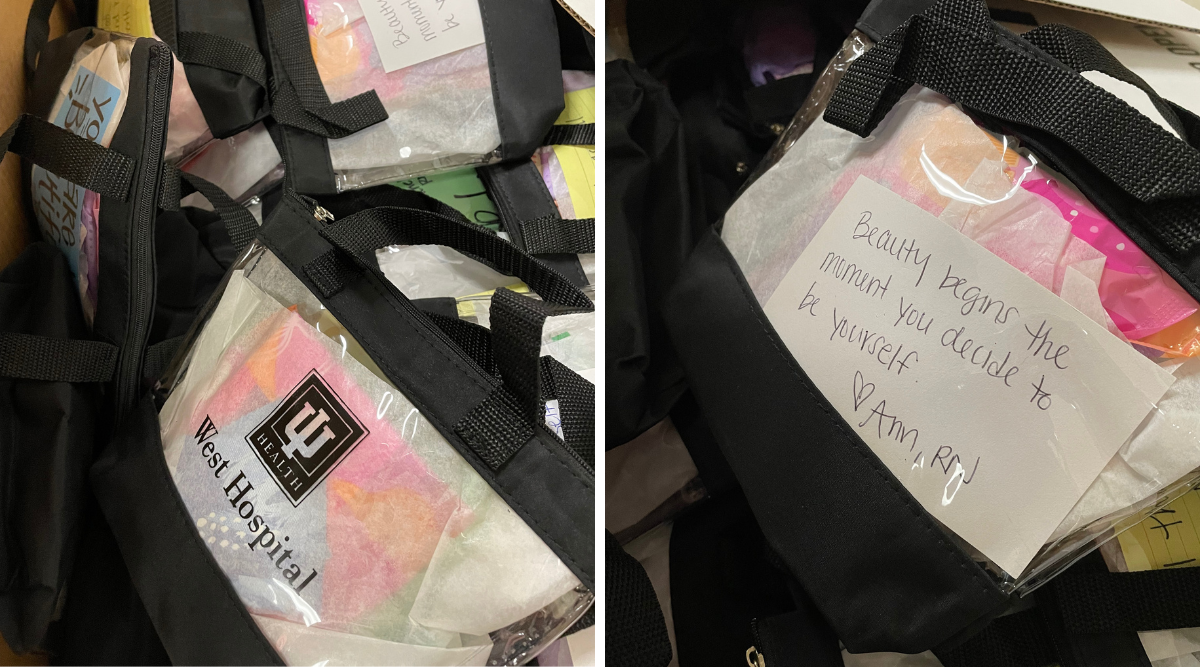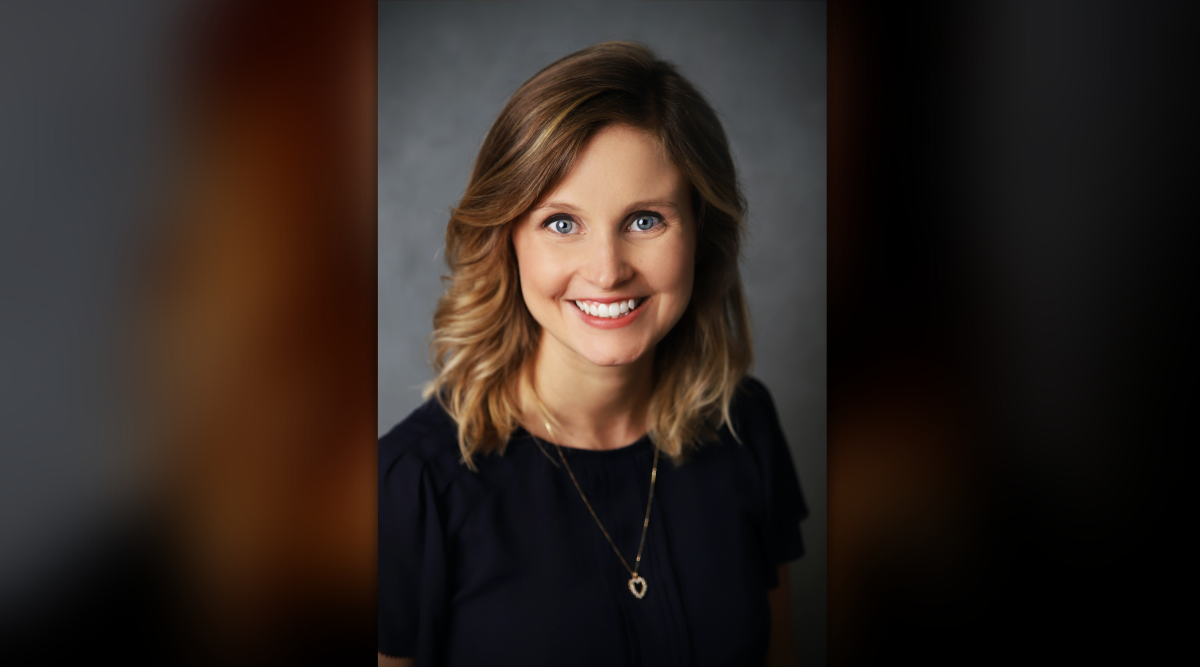By Emma Avila, epackard1@iuhealth.org, writer for IU Health’s Indianapolis Suburban Region
Team members at IU Health West are taking steps to help local young women before and after they have their first menstrual cycle.
Menstruation is a normal and healthy part of life for most women, but as common as it is, it can be difficult to talk about. Periods begin during puberty, which means many young girls are navigating their first and proceeding menstrual cycles during school hours. IU Health West nurses and an OB/GYN want to make sure girls have the supplies and information they need.
In partnership with the Wayne Township Education Foundation and Stout Elementary School, IU Health West nurses recently held a hygiene kit drive to assemble packs the school nurse will use throughout the year for girls who need help with their period. The kits include a pad, wipes, new underwear, a few other items and a note of encouragement from a nurse.

The team was able to assemble 100 kits, which should last the entire school year.
Conversations surrounding periods can be difficult, both at school and at home. Dr. Jessica Healey, OB/GYN at IU Health West and mom of two young daughters, knows it’s important for young girls to be prepared and informed. Below, she answers some questions about the menstrual cycle, how to approach conversations surrounding the topic, and how an OB/GYN can help.

What is the menstrual cycle?
“When a girl reaches puberty, the brain will start to produce hormones that signal changes in the body, which are meant to prepare her body to be able to become pregnant. Those hormones will thicken an inner layer of tissue inside the uterus called the endometrium so that it can provide blood flow to a potential pregnancy. A menstrual period occurs when the body then recognizes that it’s not pregnant and will shed this endometrial lining. Women will often experience cramping as the muscle of the uterus contracts to help push out this old blood and tissue. This is experienced by women as the blood and tissue leave the uterus through its opening called the cervix. It then comes out through the vagina and is seen as blood, or better known as a period.
All of this is regulated by hormones from the brain and the ovaries, which can change daily in a woman’s natural cycle. Period bleeding usually lasts anywhere from three to seven days. A normal cycle will occur every 24 to 32 days.”
Why is this healthy for the female body?
“It’s healthy for the body because it allows the uterus to grow a new fresh lining for a potential pregnancy each month, making sure that the tissue that is there is healthy and has everything it needs for a potential pregnancy. The layer of tissue then must leave the body each month because the hormones stimulate growth of new tissue each cycle. If there’s overgrowth of the tissue inside the uterus, meaning it doesn’t leave because menstruation or a period isn’t occurring, this can lead to heavy or irregular bleeding, pelvic pain or other long-term issues.”
When do girls typically get their first period?
“Average age of starting the first period is 12 or 13. Some girls can start as young as age eight and others may not start until as late as age 15. If they haven’t started by about age 15, they probably should start having conversations with their doctor.
I have two daughters; they are eight and five. Some of my experience is based off of my job and some is based off of being a mom. In my opinion, having multiple smaller conversations over the couple of years before your daughter is due to start her period can help make her more comfortable talking about it over time. As an OB/GYN, I was nervous about these conversations with my own two daughters, but I have found that they are extremely curious. I’m just very open with talking with them about things like breast growth, menstrual bleeding, how babies develop and how they are born.”
Do you have any tips on how to approach these conversations?
“I think listening to the curiosity your child has and being willing and open to discuss those things when they come to you is important. Being able to just educate yourself on the menstrual cycle and what your child might experience is also key. A lot of adults still don’t really understand what it is or why it’s happening or the timeline of how things happen. If that’s the case, do your own research or, if you have an OB/GYN, you can ask them those questions. If you feel very uncomfortable, it’s also very reasonable and appropriate to ask either your child’s pediatrician or have your child see an OB/GYN to have these initial discussions.”
